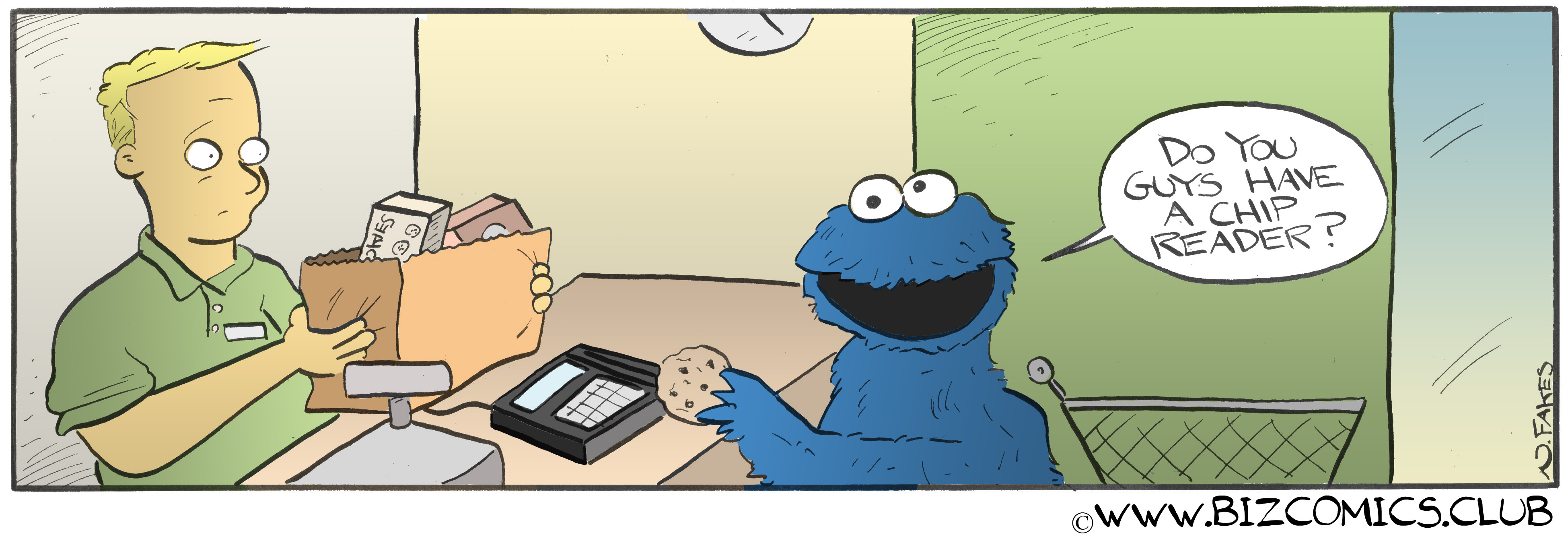Chips Are the New Dough

Isn’t it ironic that we rely on computer technology to resolve problems created by computer technology? Before computers made our lives so simple, we exchanged cash for goods. But simple wasn’t good enough. So, we invented computers … and the trouble began.
Computerized cash registers gave way to scanners that read the magnetic stripes on our credit cards. Scanners gave way to skimmers, scammers, hackers, and all manner of nefarious ne’er-do-wells. Scanners, skimmers, scammers, and ne’er-do-wells gave way to chips, which promised new levels of security, serenity, and complication. And the swindlers are hardly finished.
We Reap What We Sow
It’s hard to say precisely when the seeds of transactional complexity were sown. Mechanical computers date back to the 19th century. (See “Babbage, Charles”.) And digital computers were common practice by the middle of the 20th century. But as one year out of many, 1968 seems a pretty good year to pick (as opposed to pick on) as being propitious for the self-confounding intricacy of nearly everything. Condsider:
Much of the fantasy written in 1968 involved computers. Arthur C. Clarke published 2001: A Space Odyssey. Martin Caidin published The God Machine, a novel about the development of computer consciousness. Philip K. Dick published Do Androids Dream of Electric Sheep?, a novel that blurred distinctions between life and mechanism. Michael Frayn published A Very Private Life, a novel that presented a dystopian vision of automation. John Sladek wrote Mechasm (aka The Reproductive System), a novel about machines that self-reproduce. Robert Silverberg wrote “Going Down Smooth”, a short story about a robotic psychiatrist. And Richard Brautigan wrote the wonderful poem, “All Watched Over by Machines of Loving Grace.”
Art Presages Life
Sure enough: At the 1968 Joint Computer Conference, held in San Francisco’s Civic Center, Douglas C. Engelbart of the Stanford Research Institute demonstrated a communication system comprising a keyboard, a keypad, a mouse, and windows. He used a word processor and a hypertext system to perform remote, collaborative work with colleagues. Currency would never be the same.
Given our predilection for precipitating unforeseen consequences, it’s amazing how little we’ve learned in almost 50 years.
We saw a dinosaur the other day. He was carrying cash. He seemed quite happy.

0 Comments